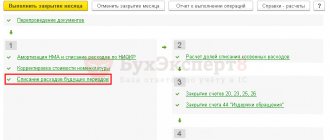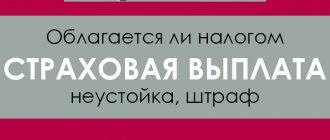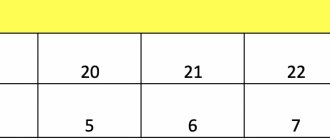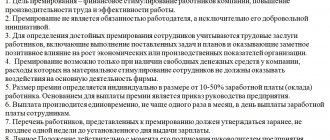Russian tax legislation provides for a number of concessions, the purpose of which is to stimulate the development of high technologies. For example, for IT companies that meet certain requirements, the insurance premium rate is reduced. In addition, at the regional level, a preferential tax rate may be established in connection with the use of the simplified tax system. A significant benefit for high-tech companies is exemption from VAT on the basis of subparagraph 26 of paragraph 2 of Article 149 of the Tax Code.
Not everything is gold...
Companies developing software for a customer quite often try to take advantage of this last benefit. However, the tax authorities refuse this and often win disputes in arbitration courts.
The fact is that taxpayers often inaccurately interpret the norm of subparagraph 26 of paragraph 2 of Article 149 of the Tax Code of the Russian Federation. the implementation of exclusive rights to programs, databases, know-how, utility models, inventions and other similar results of intellectual activity is exempt from VAT the transfer of rights to use the above-mentioned developments under license is excluded from taxation But the creation of software (software) as such, according to the Federal Tax Service and many courts, is the provision of a service or the performance of work, but not the transfer of rights to the results of intellectual activity. Consequently, such transactions are subject to VAT, which corresponds to the position of the Ministry of Finance (letter dated October 21, 2014 No. 03-07-03/52967).
The courts share a similar point of view. Thus, the Arbitration Court of the Moscow District, in its ruling in case No. A40-252272/2015, sided with the Federal Tax Service. The taxpayer insisted on exempting from VAT the operation of developing software for a third-party company, since, along with the program itself, he transferred the rights to it to the customer. But the arbitrators pointed out that the agreement between the parties provided for the performance of work on the instructions of the customer, and not the transfer of exclusive rights to a computer program.
Transition period for VAT on software
Home / Publications
What procedure for VAT exemption applies to concluded contracts?
Now IT companies are concerned with the question of how to charge VAT on software contracts concluded before 2021? Is it possible to reflect sales in 2021 for the entire term of the license or is it necessary to restore VAT for the period starting in 2021? How to calculate VAT if payment for a software license will be made in whole or in part in 2021? Does it matter whether acts are drawn up upon the granting of a license or upon payment?
Let us remind you that in 2021 the period of VAT exemption for the sale of rights to any software under alienation agreements and license agreements ends. Starting from 2021, in order to apply the VAT benefit, such software must be included in the Unified Register of Russian Programs and Databases.
As we wrote earlier, foreign software is not included in this register; domestic software is also not always registered in it. Therefore, starting from 2021, software licenses will predominantly be sold with VAT. For more information about the changes, see the previous article.
According to clause 1 of Article 167 of the Tax Code of the Russian Federation, the moment of determining the tax base coincides with one of the earliest dates: 1) the day of shipment (transfer) of goods (work, services), property rights; 2) the day of payment, partial payment for upcoming deliveries of goods (performance of work, provision of services), transfer of property rights.
Thus, according to the general rules, the sale of rights to programs is subject to reflection at the time of making an advance (including partial) or issuing a license.
Ready-made solution for your business
Software Development Kit
A complete set of documents for secure software development. Protects you in relationships with developers, clients, freelancers and full-time programmers.
Ready-made solution for your business
Software distribution package
A set of documentation for the legal distribution of software. Protects you from claims from tax authorities, copyright holders and end users.
Transfer (alienation) or granting the right to use (license) refers to the power to dispose of, which is part of the exclusive right to software (Article 1233, 1270 of the Civil Code of the Russian Federation). The copyright holder can dispose of his right by issuing permission to any person to use the software he owns, including by concluding an alienation agreement or a license agreement.
Based on clause 4 of Article 1234 of the Civil Code of the Russian Federation, the exclusive right to computer programs as a result of intellectual activity passes from the copyright holder to the acquirer at the time of concluding an agreement on the alienation of the exclusive right, unless otherwise provided by agreement of the parties. Similarly, in a license agreement, the parties have the right to agree on granting the right to use the software from the date of conclusion of the agreement, the date of payment, the date of transfer of a copy of the software, or another point.
In the alienation agreement, rights are transferred for the entire period of protection. In the license agreement, the period may be reduced (if the license term is not agreed upon, the license is considered to be granted for 5 years).
Thus, the rights are transferred (granted) for the entire period specified in the agreement or law, from the date indicated above.
Since remuneration for the transfer (provision) of the right to use programs can be established in the form of periodic payments during the term of the right, difficulties arise in determining the moment when the tax base for VAT purposes arises.
Based on clause 8 of Article 149 of the Tax Code of the Russian Federation, when changing the wording of paragraphs 1 - 3 of this article (cancellation of tax exemption or classifying taxable transactions as non-taxable transactions), taxpayers apply the procedure for determining the tax base (or tax exemption), which was valid on the date of shipment of goods (work, services) regardless of the date of payment.
According to letters of the Ministry of Finance of the Russian Federation dated 02/04/2019 N 03-07-11/6183, dated 02/01/2019 N 03-07-11/5795, dated 02/05/2018 N 03-03-06/1/6340, dated 01/23/2017 N 03-07-11/2832 the date of shipment is the date the service provider signs the certificate of services rendered.
Consequently, when transferring exclusive rights to software under an alienation agreement or granting the right to use programs under a license agreement, the version of clause 26, clause 2, article 149 of the Tax Code of the Russian Federation, valid on the date of transfer (provision), shall be applied.
Examples of VAT calculations for programs during the transition period
1. The license agreement for the software was concluded on October 1, 2021 for a period of 1 year. The right to use the programs is granted from the date of conclusion of the agreement. The payment is fixed. Payment deadline is December 31, 2020.
The sales amount is exempt from VAT according to clause 26, clause 2, article 149 of the Tax Code of the Russian Federation as amended in 20, since the license was granted in 20.
2. Let's change the conditions of the problem. The remuneration is paid in 2 parts: the first part by December 31, 2020, the second by March 31, 2021. The entire amount of remuneration is reflected in accounting as sales in 2020.
Since the right to use the software was granted for the entire period of 2020, the sale is exempt from VAT according to the wording of clause 26, clause 2, article 149 of the Tax Code of the Russian Federation, which was in force on the date of sale.
3. The license agreement for the software was concluded on October 1, 2021. The license is granted for a period of 1 year. Remuneration is paid quarterly and sales are reflected in acts upon payment.
In fact, the rights are granted from the date of conclusion of the contract, but records are kept upon receipt of payment. In this regard, the problem of reflecting VAT according to the rules of 21 years arises in relation to 3 payments. 4. The license agreement was concluded in 20. Provides for the provision of licenses for programs upon payment. Invoices are issued monthly.
The rules regarding VAT exemption will apply here at the time of payment of each invoice separately.
Explanations from the Ministry of Finance on the procedure for exempting rights to software from VAT from 2021
Everything is fine, except for the letter of the Ministry of Finance dated November 20, 2020 N 03-07-08/101332 . It provides explanations on the procedure for calculating VAT on the sale of software, which causes confusion among many specialists.
The background of the letter is as follows. The taxpayer contacted the Ministry of Finance with a request, in which he indicated that he transferred the rights under the act in 2020 for the full cost of the license, but the license expires after 01/01/2021. To which the Ministry of Finance responded that it does not provide consultations on specific cases, but provided general explanations on the changes. Here is an excerpt from the letter.
Starting from January 1, 2021, the transfer of rights to use Russian and foreign software not included in the unified register of Russian programs for electronic computers and databases will be subject to value added tax in the manner prescribed by the Tax Code of the Russian Federation (hereinafter referred to as the Code) .
At the same time, there are no exceptions for services for the transfer of rights to use software, implemented under contracts concluded before the entry into force of Federal Law N 265-FZ, and of a continuing nature with the transition to 2021 and subsequent years.
Consequently, in relation to services for the transfer of rights to use programs for electronic computers, provided starting from January 1, 2021, a value added tax tax rate of 20 percent is applied, regardless of the date and conditions of concluding contracts for the provision of these services.
Despite the caveat preceding the letter, the clarification was perceived as an answer to a question framed within the specific situation of the license being “shipped” in 2020. However, we are inclined to believe that the explanations should be taken literally with the caveat that they do not apply to a specific case.
With this in mind, the letter dated November 20, 2021 addressed the general situation with the conclusion of a contract before the amendments came into force and the transfer of rights in 21, when the exemption rules have changed. In this interpretation, it is indeed necessary to apply the rules with the amendments that have come into effect, which require inclusion of software in the appropriate register before the sale of rights to it is exempt from VAT.
In other words, the Ministry of Finance repeated the provisions of the law that the VAT exemption rules in force at the time of granting rights apply, regardless of the date of conclusion of the contract. See when rights were transferred and apply the appropriate rules.
Vitaly Selivanov, 2020
Taxes in IT
The main thing is the contract
However, arbitrators do not always come to this conclusion. The content of the contract on the basis of which the software is developed and the exclusive rights to it are transferred to the customer is of decisive importance. For example, several years ago the courts considered a similar case, and then the arbitrators supported the taxpayer.
The parties entered into three agreements for the development and modification of software. The contracts were of a mixed nature and were concluded in relation to a whole range of works: drawing up technical specifications, developing and modifying software, and performing related work. It is important that each of the contracts contained conditions under which the contractor transferred to the customer exclusive rights to the results of his intellectual activity.
Representatives of the Federal Tax Service insisted that the agreements between the parties were of a contractual nature. The parties did not enter into a license agreement providing for the transfer of exclusive and non-exclusive rights. Consequently, the company challenging the tax provided its counterparty with the service of developing and modifying software, and such transactions are subject to VAT.
The court indicated that the relationship between the parties is qualified not on the basis of the name of the agreement that they entered into, but on the basis of its terms. Even though the agreements between the customer and the contractor were not called licensing agreements, they contained all the signs of such agreements. They expressed the will to transfer the rights to the exclusive use by the customer of the results of the intellectual activity of the performer and described the procedure for transferring these rights.
Moreover, according to the terms of the contracts, payment was made specifically for the transfer of rights to the software to the customer. And although the contracts contained other items in addition to the transfer of these rights (software creation and related work), these works were not paid for separately.
All of the above circumstances gave the court grounds to classify the relationship between the parties as an agreement on the alienation of exclusive rights. Thus, the court recognized the rightness of the taxpayer and the legality of his failure to pay VAT.
Software creation: accounting
An IT product manufactured in a company is taken into account as part of intangible assets if it meets the criteria listed in clause 3 of PBU 14/2007, i.e.:
- the company is the copyright holder with documentary evidence of exclusive rights to the product;
- the useful life of the object exceeds 12 months, and it is expected to receive benefits from its use in the activities of the company;
- there are no plans to resell it for at least a year;
- the original cost can be reliably determined.
The created program is recognized as an intangible asset and is accepted for accounting at its actual cost, which is defined as the sum of all costs associated with the creation process: inventories, salaries of personnel involved in the production of intangible assets and insurance contributions for payroll, services of contractors and suppliers, purchase of patents, payment of duties, rental of premises (if developers work in separate offices). Only paid refundable taxes (clause 3 of Article 257 of the Tax Code of the Russian Federation), for example, VAT on services provided by suppliers, are not included in expenses. To combine costs (produced by contract or self-employment), a separate sub-account is opened to account 08 and taken into account in analytical accounting by type of expense or intangible assets.
At this point, the company determines the SPI, which does not exceed the life of the company. If it cannot be reliably established, then such assets are considered intangible assets with an indeterminate SPI and depreciation on them is not accrued in accounting (clause PBU 14/2007). In tax accounting, for taxation of profits under the exclusive right of such objects, an SPI of at least 2 years is established (clause 2 of Article 258 of the Tax Code of the Russian Federation). With the straight-line depreciation method, the rate of depreciation is calculated by dividing the cost of intangible assets by joint investment assets.
conclusions
So, in order to apply the benefits provided for in subparagraph 26 of paragraph 2 of Article 149 of the Tax Code of the Russian Federation, it is necessary to carefully work on drawing up the agreement. It would be good if it was called a license , but in any case it must contain all the essential terms of such an agreement in accordance with Article 1296 of the Civil Code.
The main thing that should be spelled out in detail in the contract is the conditions for transferring the software to the customer and the accompanying transfer of exclusive and non-exclusive rights . If there are several subjects of the contract, for example, drawing up technical specifications, software development and transfer of rights, it is worth describing in detail the conditions of each of these subjects/stages. Please note that since these tax preferences apply to the transfer of rights, payment must be linked to this process.
The contract should also note the need for software updates or support. Let us note that, according to the Federal Tax Service and arbitration courts, services for updating or modifying programs to meet customer requirements are operations subject to VAT.
Software Development Accounting: Postings
In accounting, the creation of software is reflected by the following entries:
| Operations | D/t | K/t |
| Software production costs taken into account | 08 | 10,60,69,70,76 |
| The created software is accepted for accounting | 04 | 08 |
| Monthly depreciation has been calculated for the object | 20 (26) | 05 |
An example of how software development costs are reflected in a company’s accounting
In May-July 2021, a programmer at Mir LLC developed software for preparing internal reporting for the company. Exclusive rights belong to the company; it uses the straight-line method of depreciation.
The LLC's costs for creating the software amounted to RUB 273,000, including:
210,000 rub. – programmer’s salary (70,000 rubles for 3 months);
63,000 rub. – deductions of insurance premiums.
In July, an act on putting the software into operation was drawn up. The accountant recorded the asset with an original cost of RUB 273,000. as part of NMA. In tax and accounting, the same SPI is established - 5 years. Depreciation begins in August 2021.
In July, the accountant prepared records for accounting for software development:
| Operations | D/t | K/t | Sum |
| Software production costs taken into account | 08 | 69,70 | 273000 |
| The created software is accepted for accounting | 04 | 08 | 273000 |
| Since August, monthly depreciation has been calculated for the facility (273,000 / 60) | 26 | 05 | 4550 |
Updating or upgrading the software does not increase its original cost. These costs are taken into account in the expenses of the current period, and expenses related to the following reporting periods are reflected in the structure of expenses of future periods and are written off evenly.
In what cases are rights to software sold without VAT?
The sale of rights to software by individuals, or organizations and individual entrepreneurs that do not apply VAT (USN, Skolkovo resident, etc.) is exempt from VAT.
The exercise of rights to software without VAT by organizations and individual entrepreneurs on OSNO is subject to the inclusion of such software in the unified register of Russian programs for electronic computers and databases ( Register of Domestic Software ).
However, registering software in this Register has a number of difficulties and limitations. For example, the private copyright holder of registered software can only be a citizen of the Russian Federation or a Russian organization, with a share of participation of Russian citizens, commercial organizations and NPOs without predominant foreign participation, more than 50%, as well as a Russian NPO without predominant foreign participation.
Thus, when importing foreign software and services based on such software, VAT benefits based on paragraph 26, paragraph 2, Article 149 of the Tax Code of the Russian Federation will not be provided regardless of the type of contract.
Russian software copyright holders also experience difficulties with including their software products in the Register, since there are a number of restrictions on the use of foreign software components in domestic software. In addition, there are a number of problems with compliance with the requirements of the Decree of the Government of the Russian Federation of November 16, 2015 N 1236 regarding the composition of the technical documentation provided in the package for software registration in the Register.
Detailed information on the registration procedure in the Register of Domestic Software can be found here.









